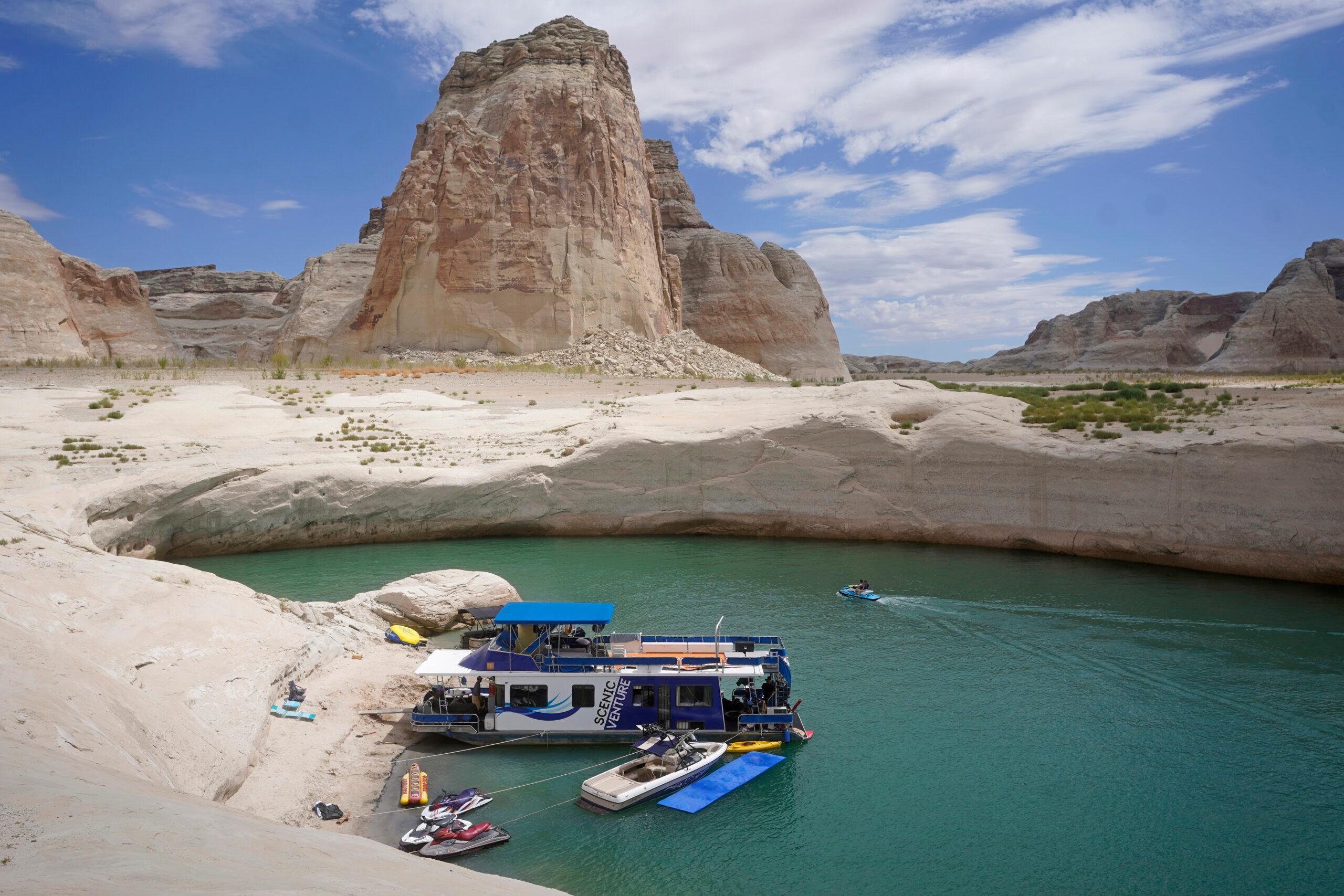
Coloradans want more investment in conservation efforts, particularly when it comes to water. That’s the result of a new bipartisan survey conducted by Colorado College.
Those opinions, largely consistent among residents across Western states, remained stable even amid the economic unrest, inflation and high energy prices seen in the last year.
“When we’ve asked them what do they like most about where they live, It is overwhelmingly about the land, the view, the wildlife,” said Lori Weigel with conservative polling firm New Bridge Strategies. “I think it’s somewhat more integral to their identity than, you know, the price of eggs.”
The Conservation in the West Poll, now in its 13th year, surveyed more than 3,400 people across 8 Intermountain West states in January. Colorado College contracted with both Republican and Democratic pollsters to oversee the survey and asked respondents questions across a wide range of conservation issues, including the impact of oil and gas drilling, wildfire danger, hunting and fishing access, and where congressional leaders should focus their attention.
The poll shows between 70 and 90 percent of Westerners support such broadly-defined conservation goals like ensuring healthy forests, protecting wildlife habitats and migration routes and preventing light pollution. Those results track with findings in recent years.
Despite rising energy costs, more than two-thirds of respondents told pollsters reducing the need for oil and gas through expansion of renewables is a greater priority than expanding production of domestic oil, gas and coal. Wyoming was the one state polled where a majority favored greater fossil fuel production, with 57 percent in support.
One area where pollsters have seen a notable increase in concern is around population growth. Results from 2023 showed 75 percent of respondents said too many people moving into their state was a “serious problem,” up from 47 percent in 2016.
As for Colorado’s poll results, respondents show particular concern around water resources and drought, with 87 percent describing shortage of water supplies in the West as a problem and 77 percent believing conservation of Colorado River water is in need of “urgent action.”
At the same time, many survey respondents displayed inaccurate perceptions about which segments of the state’s economy use the most water. The largest share of those polled, at 35 percent, believe industry and business use the most water in Colorado. In contrast, 29 percent said households use the most water and only 34 percent of respondents correctly identified that farmers and ranchers use the most water.
In fact, agriculture uses by far the most water in Colorado, at about 86 percent of the state’s total water use. Dave Metz, with Democratic polling firm FM3 Research, said the misconception is common across the West.
“I think it does highlight an area where there’s room for public education,” Metz said. “Given how critical public concern is about water shortages, understanding how water is currently used is helpful in making decisions about what policies we need to enact to ensure that we have sustainable supplies for all of these sectors moving forward.”
On top of state-specific and topic-specific results, pollsters also produced reports focusing on what specific demographic constituencies care most about in conservation, including among Black voters, Latino and Native American voters and, for the first time, Gen Z voters.
Colorado College holds the license to operate KRCC. Colorado Public Radio operates KRCC.









